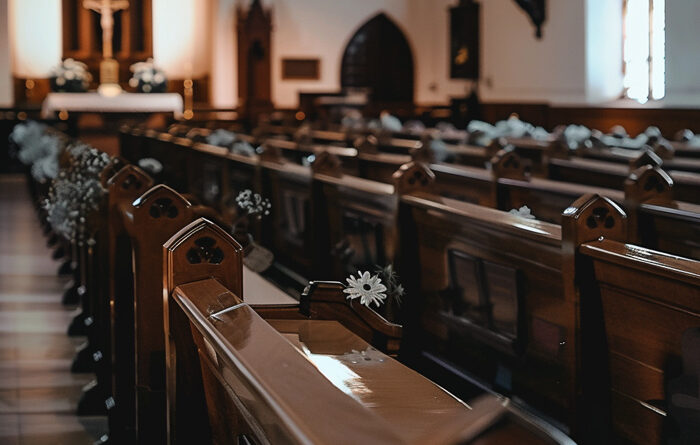
Introduction to Selecting Music for Religious Funerals in Miami
The sacred act of bidding farewell to a departed soul is a time-honored tradition, steeped in cultural and religious practices. In the vibrant city of Miami, where a rich tapestry of cultures and traditions converge, planning a religious funeral demands a deep understanding of the varied and profound ways in which music can encapsulate the spirit of remembrance and consolation. Acknowledging and respecting the spiritual beliefs of the bereaved, music becomes a vehicle for expressing the inexpressible, often bringing solace and a sense of peace to those in mourning. This article seeks to guide you through choosing the most fitting music for religious funerals in Miami, with considerations that honor the diversity and sincerity of such an occasion.
Assessing the Significance of Music in Religious Ceremonies
Music holds a central place in religious ceremonies around the globe, invoking the presence of the divine during moments of profound solemnity. Within the context of a religious funeral, each melody and hymn is selected to capture the essence of reverence and tribute. As such, understanding the musical preferences and doctrinal guidelines of the deceased’s faith community is key to crafting a harmonious and respectful service. The chosen music often reflects theological themes of hope, resurrection, or transcendence, reinforcing the spiritual messages conveyed during the ceremony.
Understanding the Role of Cultural Diversity
Miami is a melting pot where numerous cultures and religions coexist. The music chosen for a religious funeral in this city should reflect the diverse heritage and religious sentiments of the individual. It is essential to consider the cultural nuances that define the mourner’s musical choices. Some may prefer traditional hymns or classical funerary compositions, while others find comfort in contemporary spiritual music or ethnic chants. Recognizing the multifaceted nature of grief and remembrance, selections should provide both an expression of loss and a celebration of the life lived.
The Importance of Adherence to Religious Protocols
Each faith has its own set of protocols regarding what is deemed appropriate for funeral services, including the type of music permitted. For instance, in some Christian denominations, the music must often remain reverent and scriptural-based, while Islamic traditions may require the recitation of specific Qur’anic verses instead of musical renditions. Similarly, Jewish customs traditionally favor somber, reflective tunes, and in Hindu rituals, bhajans or kirtans that evoke the journey of the soul are preferred. Appropriate consultation with religious leaders or representatives from the community is key to ensuring the selections are aligned with religious customs.
Consulting with Funeral Directors and Music Professionals
Seeking guidance from experienced funeral directors and music professionals who are knowledgeable about religious traditions can greatly simplify the process. These professionals possess the sensitivity and expertise necessary to recommend music that respects the faith and wishes of the departed. Additionally, they can provide insight into live performances versus recorded tracks and help coordinate musicians if live music is apt for the service. Input from these experts can prove invaluable in creating a dignified and meaningful ceremony.
Personalizing Musical Choices Reflective of the Departed’s Wishes
While religious guidelines provide a framework, the personal preferences of the individual who has passed should not be overlooked. Families may want to incorporate songs or hymns that held particular resonance for the deceased, thereby personalizing the service. Sharing stories or anecdotes about why specific pieces were meaningful can create a more intimate and individualized ceremony. Including these personal touches helps to honor the life and beliefs of the loved one while providing a shared moment of connection for the attendees.
Logistical Considerations for Music Selection
Practical aspects also come into play when selecting music for a religious funeral. Venue acoustics, availability of sound equipment, and the duration of the service may influence the musical choices. A larger, traditional church may be well-equipped for a choir or pipe organ, whereas an intimate chapel might be better suited to a solo vocalist or instrumentalist. Taking into account these logistical details can ensure the music resonates as intended and adds to the solemn ambiance of the service.
Conclusion: Orchestrating a Consonant Goodbye
Music serves as a profound language of collective mourning and spiritual reflection during a religious funeral. In Miami, with its broad spectrum of cultures and faiths, the selection of music demands thoughtful consideration to embody the beliefs and spirit of the deceased, while adhering to religious customs and attending to the emotional needs of the mourners. By carefully selecting music that echoes the sanctity of the occasion, bridges cultural gaps, and pays tribute to the individual, a funeral service can become a healing and unifying experience. The power of music, in tandem with religious practice, serves to comfort the bereaved and honor a life that was cherished, offering a moment of communion in the face of loss and the eternal promise of remembrance.

What are appropriate music choices for a religious funeral?
Appropriate music choices for a religious funeral often include hymns, classical music, or religious songs that reflect the beliefs and values of the deceased and their family. It’s important to consult with religious leaders and the deceased’s family to ensure the selections are respectful and fitting for the occasion.
Can secular music be played at a religious funeral?
While traditional religious funerals typically focus on hymns and religious music, some families may choose to include secular music that was meaningful to the deceased. Always consider the setting and religious customs, and discuss with family members and religious officiants to ensure it is appropriate.
How do I choose a soloist or musician for a religious funeral service?
When selecting a soloist or musician, consider their familiarity with religious funeral services and the music that will be performed. Seek recommendations from your place of worship, funeral director, or others who have had similar services. It’s important the musician can perform in a way that honors the service’s reverent nature.





